The Volkswagen GTI Clubsport 24h Is a Museum Car Reborn to Race
Most race cars retire without fanfare; their exploits quickly forgotten for the latest round of quicker machinery. The cars that weren’t winners are often scrapped, forgotten, or scavenged for spare parts in service of their successors. Lucky ones get a more relaxed second life in historic racing series.
But what of would-be motorsport machines that never arrived at the starting line in the first place? They’re lucky to end up with a few lines in a listicle a decade after their stunted chance at glory.
The racing version of the eighth-gen Volkswagen GTI was headed down a similar path after Vee-Dub pulled the plug on all factory motorsport programs in 2020, midway through the GTI touring car’s development. The Volkswagen Motorsport staff was split up and reassigned to work on other projects within the company, and the prototype they’d been working on—the Mk8 GTI TCR—joined the brand’s museum inventory, unfinished.
The one-of-one work-in-progress subsequently traveled to the United States as a marketing and PR asset, trotted out to local circuits to reel off routine demonstration laps instead of traveling the world and angrily banging doors with the Hyundais, Hondas, and other competitors in TCR-class racing series. But fate had another path for this special GTI, and it would soon be yanked out of obscurity and onto one of the biggest stages in motorsport.

As part of the 50th birthday celebrations of the Golf nameplate in 2024, VW decided to honor its hatchback’s venerable racing history with a special project that evolved into a plan to compete at the Nürburgring 24 Hours (N24). With just months until the race and without a factory racing division, building a new car was out of the question—but what about that old Mk8 GTI TCR prototype that’d been kicking around in America?

And so began the fast-tracked process of turning a half-finished racer into a world-class competitor. The Volkswagen Motorsport engineers who’d formerly been involved with the project the first time around were willing and eager for another go. They knew the car well and were champing at their bits to pick up where they’d left off, but they’d have to work at night after their day jobs, and they needed a little extra help.
And Max Kruse Racing was there to provide it. Co-founded and run by Volkswagen development driver, brand ambassador, and professional racer Benny Leuchter, the racing team complemented VW’s in-house engineers by providing invaluable experience with setting up and running a car in a 24-hour endurance race. Leuchter’s familiarity with Volkswagen Motorsport made the partnership even stronger.
The Mk8 GTI TCR prototype was shipped back to Germany, where it was immediately routed to Max Kruse Racing’s HQ in Duisburg. With a four-month countdown to the N24, time was of the essence.
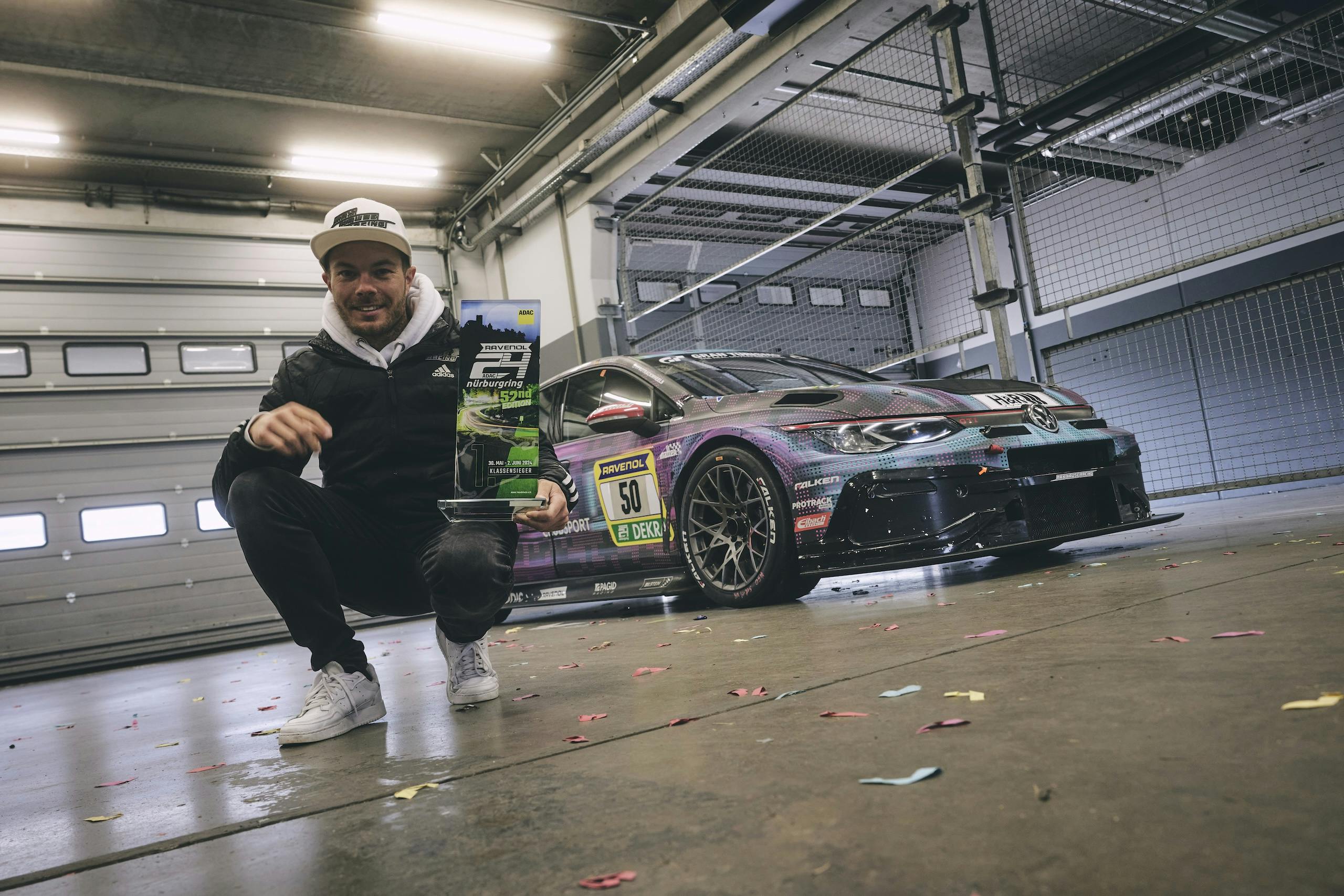
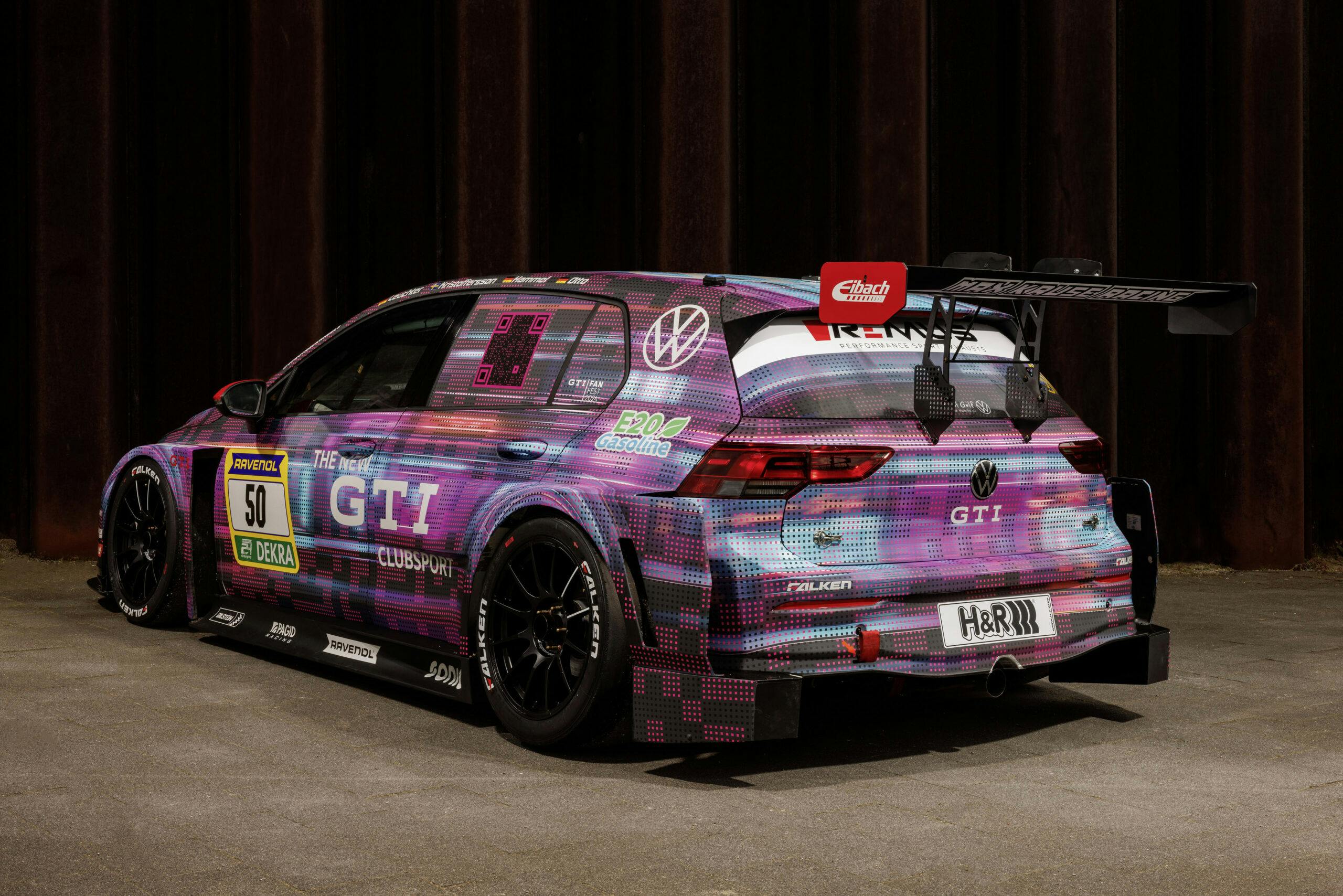
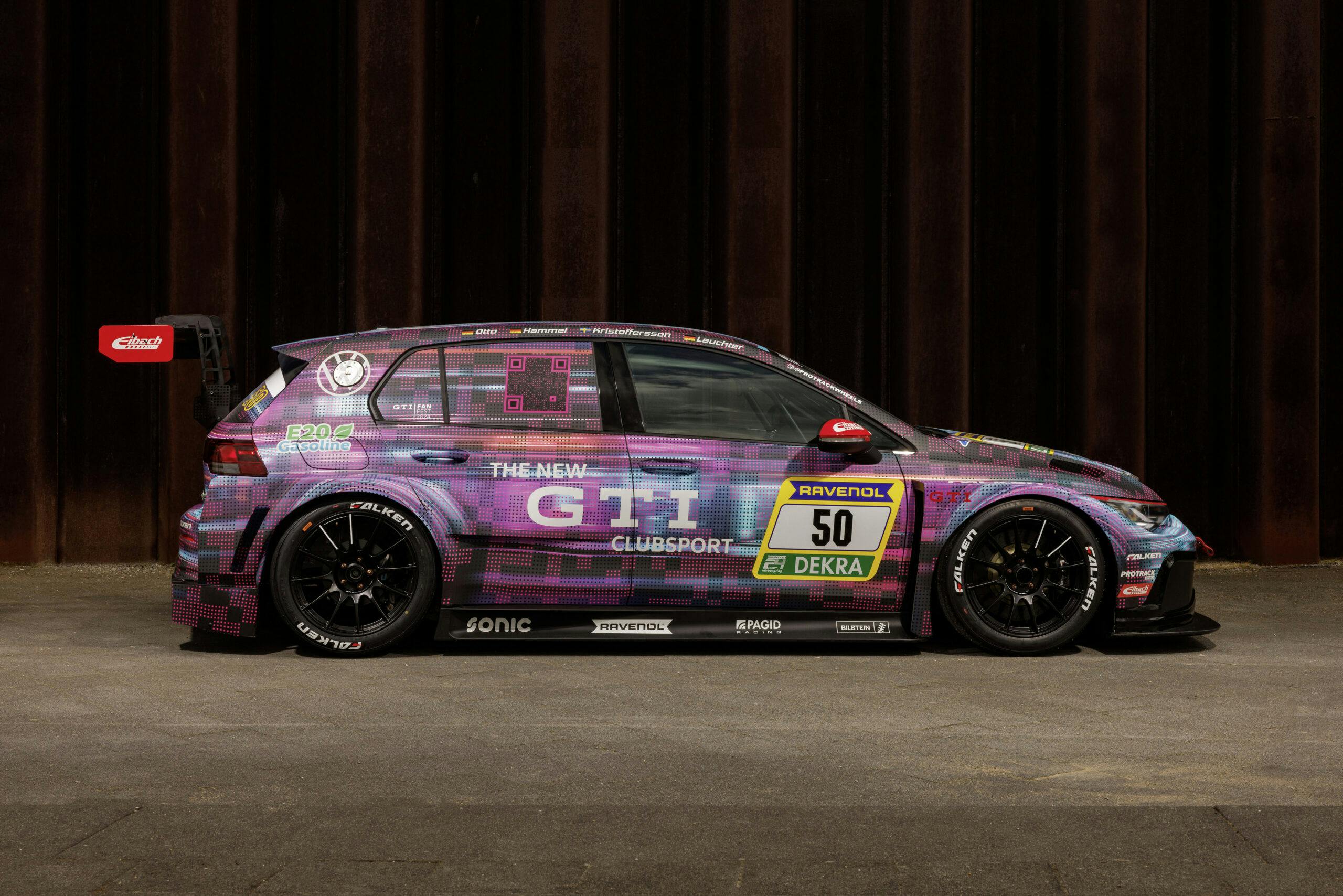
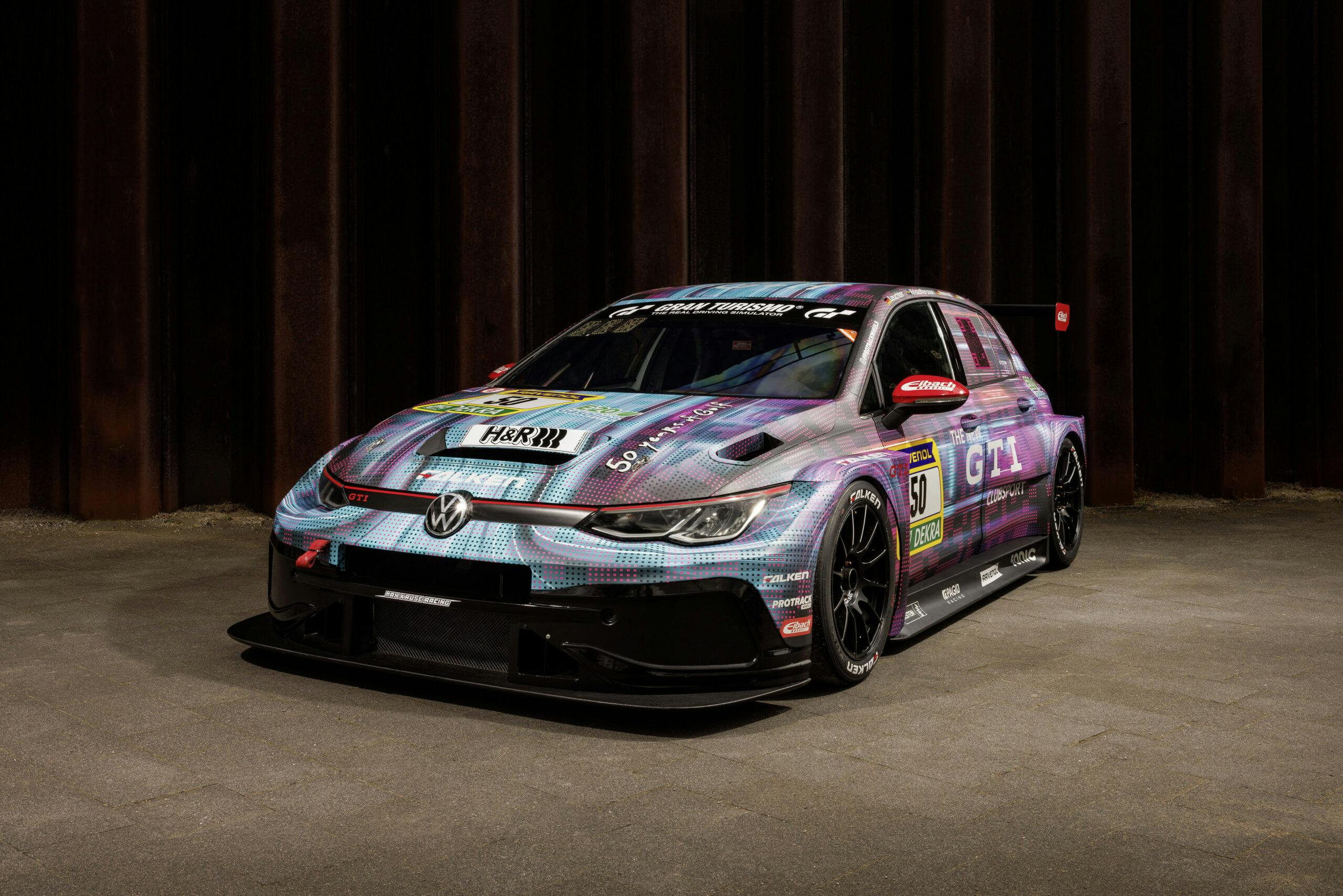
The powertrain package was largely left as-is, with the most significant changes occurring on the software rather than hardware side. Namely, the ECU was adapted to run the newly developed Shell E20 fuel that would power the GTI in the N24. “The engine is the stock GTI gen-four 888 engine [a 2.0-liter turbocharged four-cylinder],” VW spokesperson Martin Hube told us at the Nürburgring. “We are competing in the alternative fuel class, so it’s running E20 that we are using together with Shell, [which is] capable of getting rid of nearly 50% of CO2. We wanted to show that a stock engine is capable of competing with this new [bioethanol] fuel under the hardest conditions. [The car] also gained some power because the fuel is a bit more than 100 octane.” The total output in the rechristened Mk8 GTI TCR—now called the Volkswagen GTI Clubsport 24h—is 348 hp, which is just about 50 more than the recently unveiled road-going version.
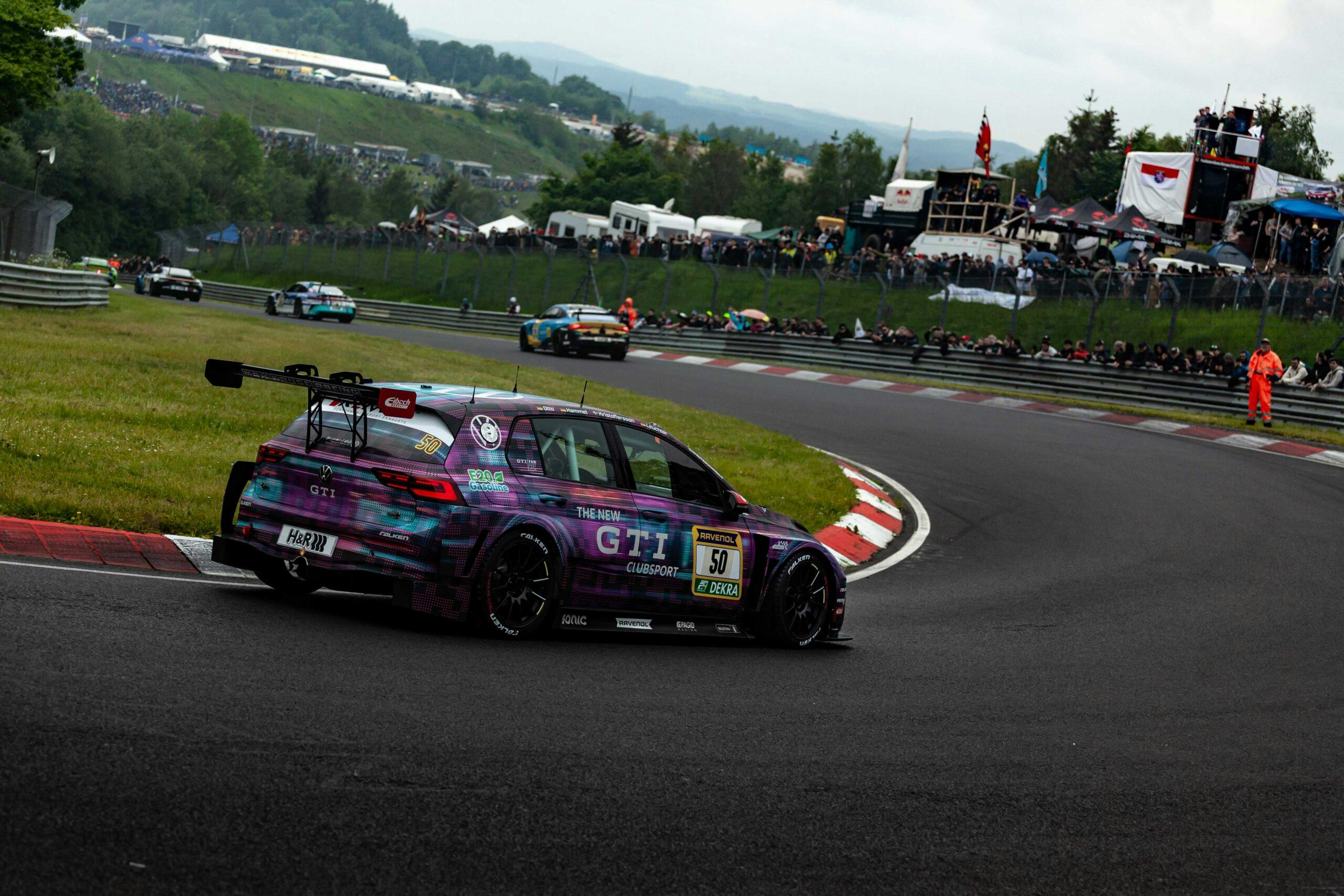
The GTI Clubsport 24h’s most noticeable augmentation, though, is its redeveloped aero package. Marketing is one reason for the revamp, seeing as the prototype featured the pre-facelift Mk8 GTI’s styling cues and would need to be updated to match the current model’s look. Win with a one-off car on Sunday, sell more base Golfs on Monday, or something like that . . . However, those with extra keen eyes for GTIs will notice that the Clubsport 24h has a mix of pre- and post-facelift design elements.
That said, the main impetus behind the aero makeover was performance-focused, with the engineers incorporating the latest principles into their old car’s new fenders, wings, splitters, diffusers, and every other wind-shifting bit and bob. The resulting look is the meanest looking widebody ever worn by a factory-backed Volkswagen. Like the prototype, the finished Clubsport 24h completes its silhouette with a chunky rear wing hung from swan-neck supports attached to the hatch, and a single very purposeful-looking center-exit exhaust.
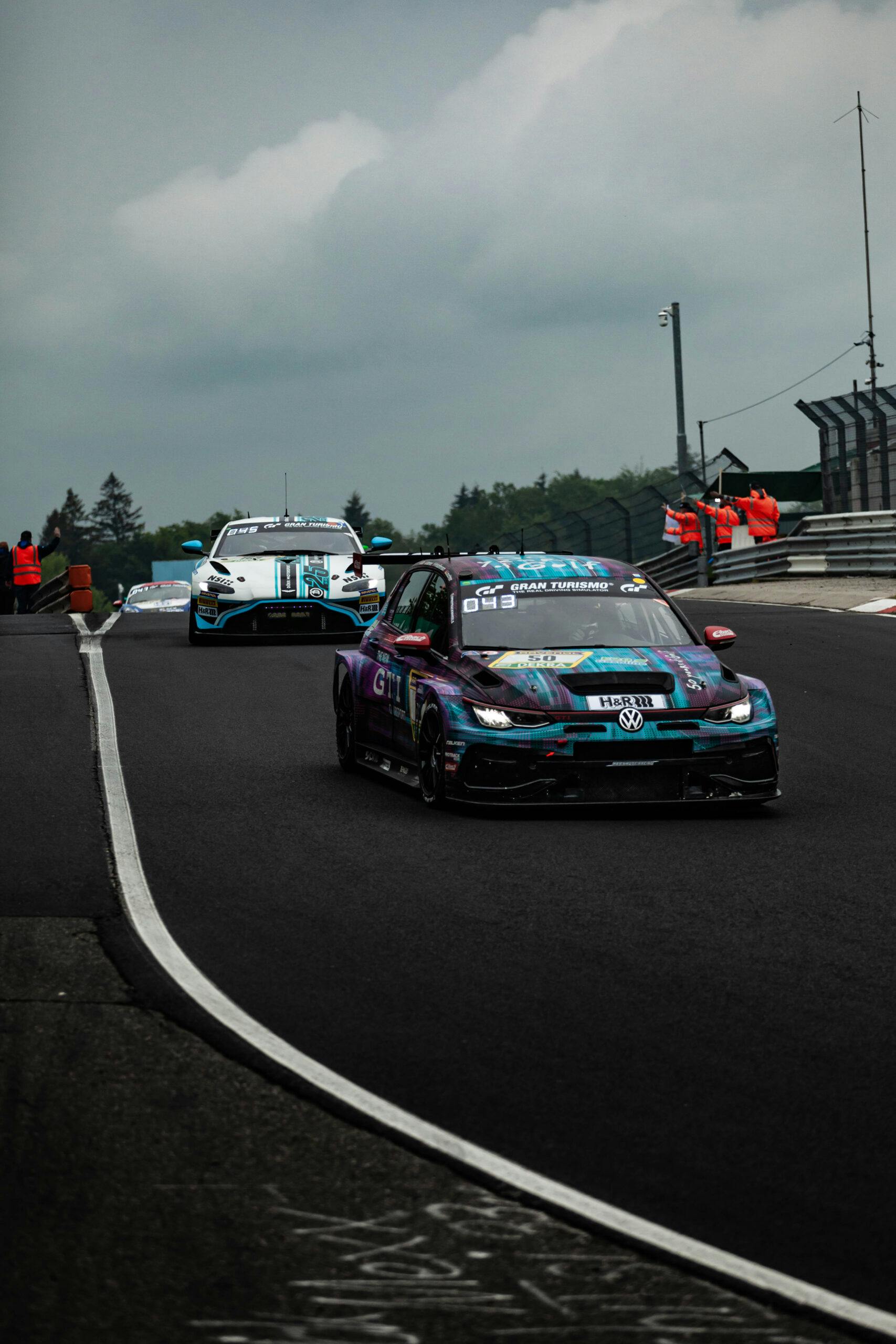
With the bodywork buttoned up, it was time for the new roll cage and safety structures to be homologated with just a few weeks before the green flag, so the Clubsport 24h was flat-bedded to a testing and certification center in Spain to make sure everything was in order. With its up-to-date safety compliance in hand, it then headed back to Germany for last-minute shakedowns at Volkswagen’s test track in Ehra-Lessein. The VW engineers and the Max Kruse Racing team had just enough time to define the parameters and tolerances of their car’s systems—for example, how hot the gearbox oil could get without leading to mechanical failure, and which shift points to use to maintain the appropriate operating temperature—before it was time to put all their efforts to the test at the Clubsport 24h’s first-ever race.

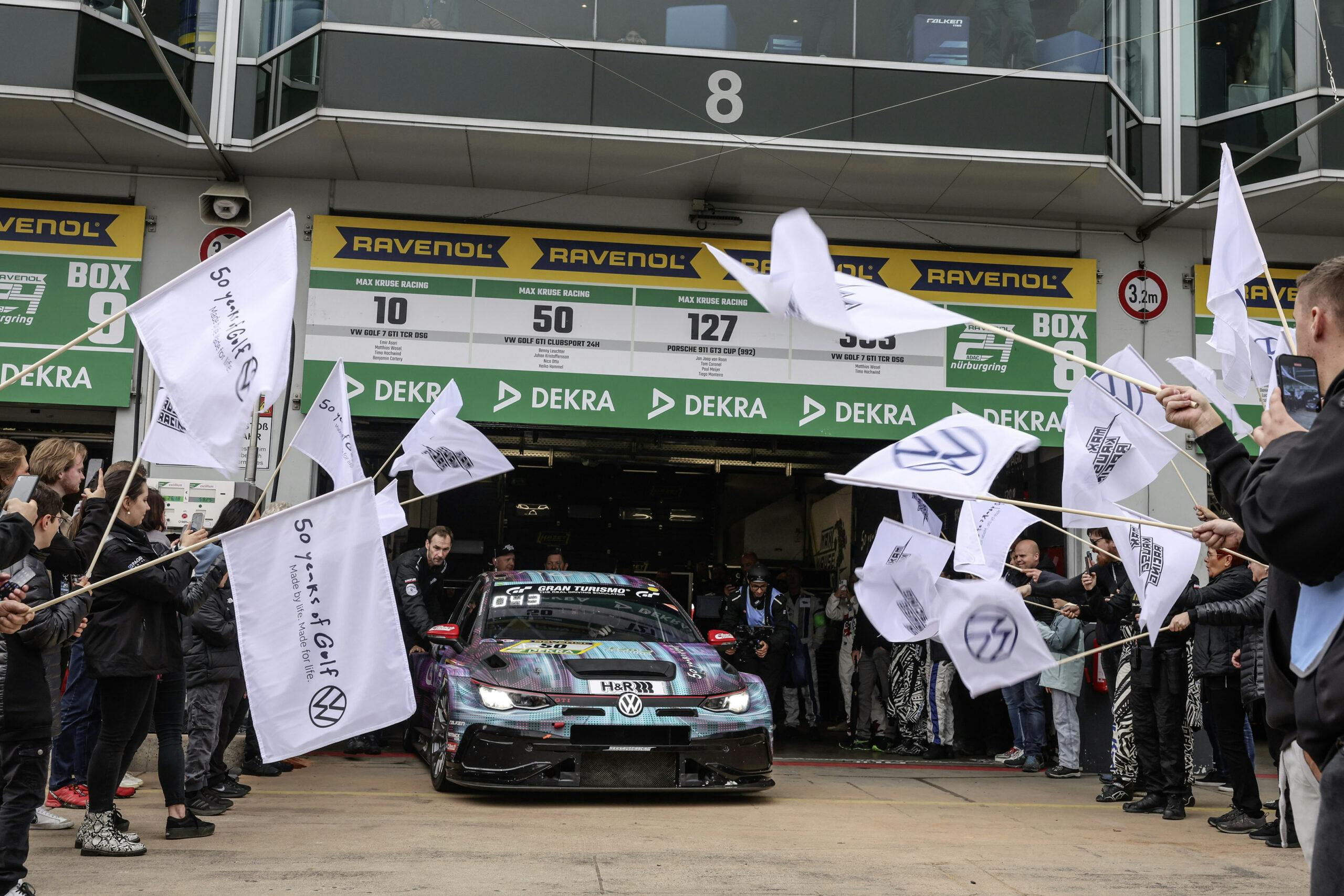
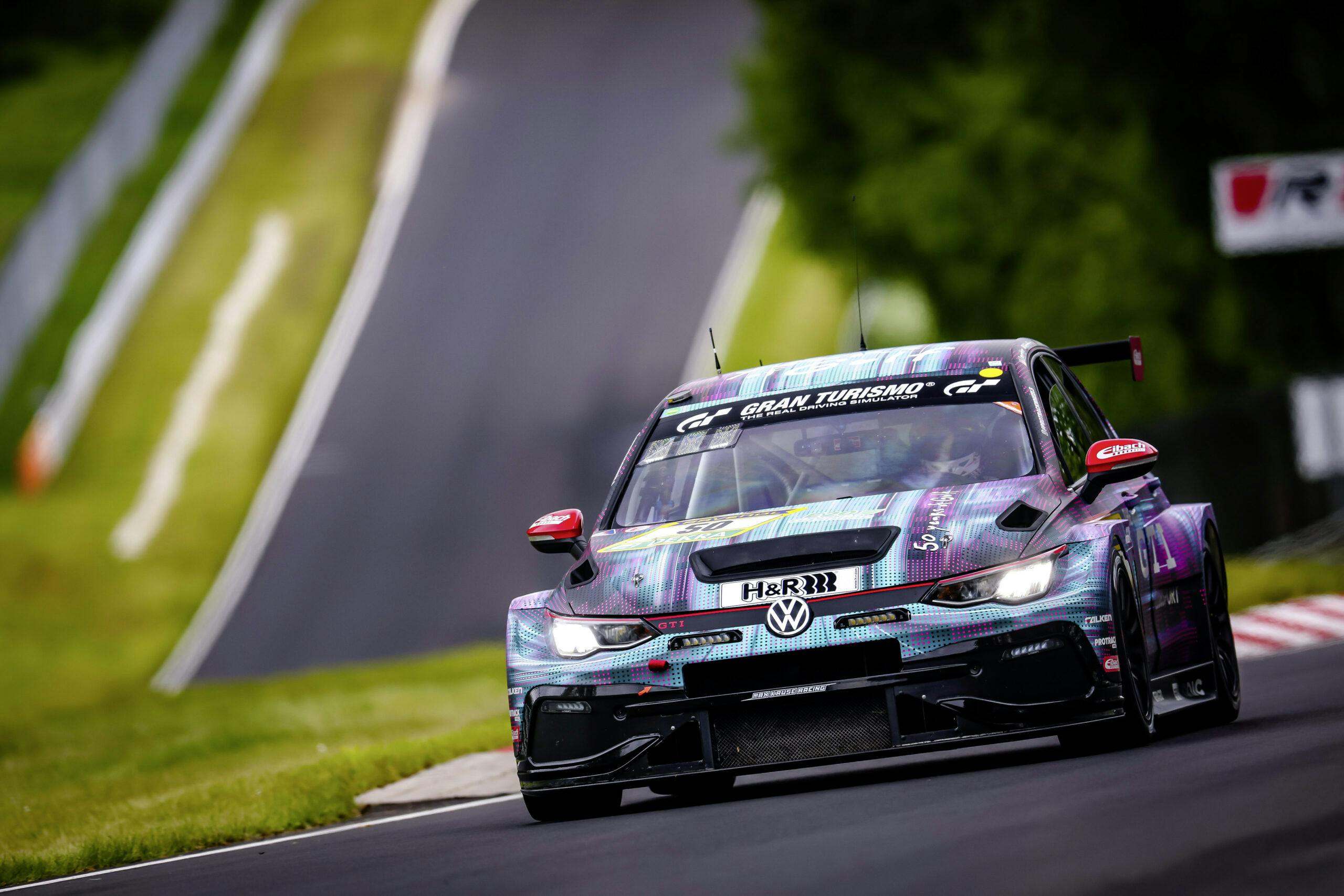
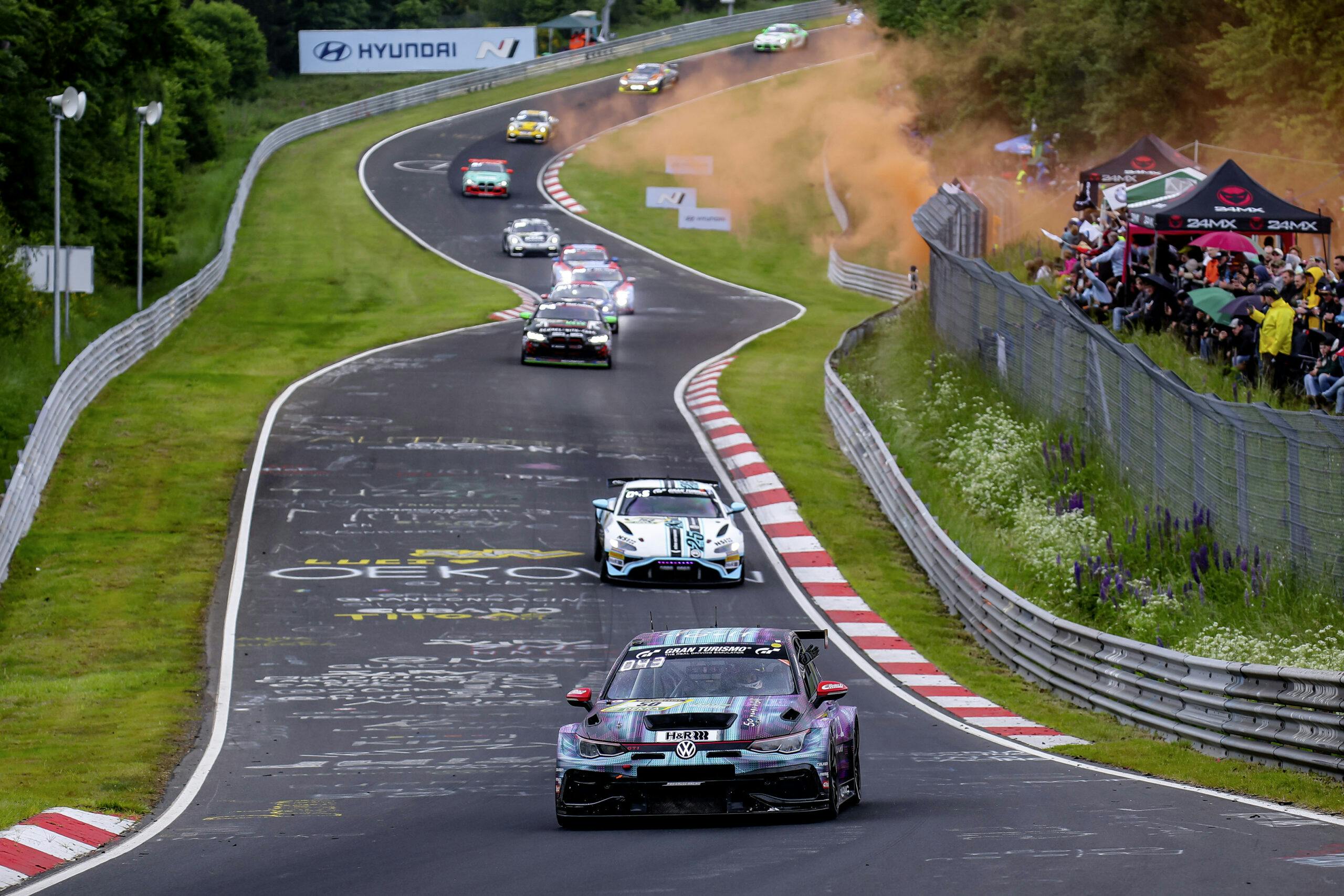
There are less daunting debuts than a day-long trial by fire (and fog) at the Nürburgring, but the Clubsport 24h was immediately impressive upon its arrival in Nürburg. Before the race proper, the car set a new front-wheel drive racing car record at the track (which combines the shorter and more modern Grand Prix circuit with the infamous Nordschleife for a total lap length of just under 16 miles) during qualifying: With Benny Leuchter at the controls, the Clubsport 24h clocked a 8:53.239 lap to start the race at the front of its class.
On race day, the #50 car was to be driven by Leuchter, Johan Kristoffersson, Nico Otto and Heiko Hamme over the course of the 24 hours. Mother Nature had other plans however, and the dense layer of fog that immobilized the emergency services helicopter saw the race halted after 7 hours and 22 minutes. Track conditions were closely monitored as hundreds of thousands of fingers were crossed for a restart that never came. To the disappointment of nearly a third of a million people who’d come to compete at, watch and camp out next to this year’s race, the 2024 edition was the shortest in the N24’s 52-race history.

Despite that, the team behind the Clubsport 24h wasn’t upset with taking home the class win. The car finished in 43rd overall, conquered its category, beat more than half the overall field of finishers, and fulfilled its purpose. “We wanted to show the people in the woods, the people around the track, that this car is really capable,” Hube said, “and now we have the fastest museum car ever made by Volkswagen.”
It still is a museum piece, after all. With one race and one class win under its belt, the Clubsport 24h’s next job is back under the marketing and PR umbrella, where it will be attending the annual GTI Treffen—the world’s largest hot hatch VW celebration—in Wolfsburg during the last weekend of July. But its time as a contemporary racer may not be over, either…

On that topic, Hube told Hagerty, “We have huge motivation now. We expected to be competitive, but we haven’t expected to come to the ‘Ring and record a record lap time. That shows the capabilities of this car, and the engineers have so many ideas for further development. We’re really inspired and there is an idea to use [the Clubsport 24h] as a development car for the next years. We have two more things to celebrate: in 2026 it will be 50 years of GTI. 2027 will be 25 years of R.”
Could this car’s successful second chance revive the defunct Volkswagen Motorsport department? “Now we have to convince the board that it’s necessary to be here [at the Nürburgring], that it’s necessary to present the Golf in front of the fans here. We have to come back.” Asked how they will convince the board, Hube smiles and says with typical German playfulness masked in straightforward phrasing: “It’s better to argue our case with a good result than with a bad result.”

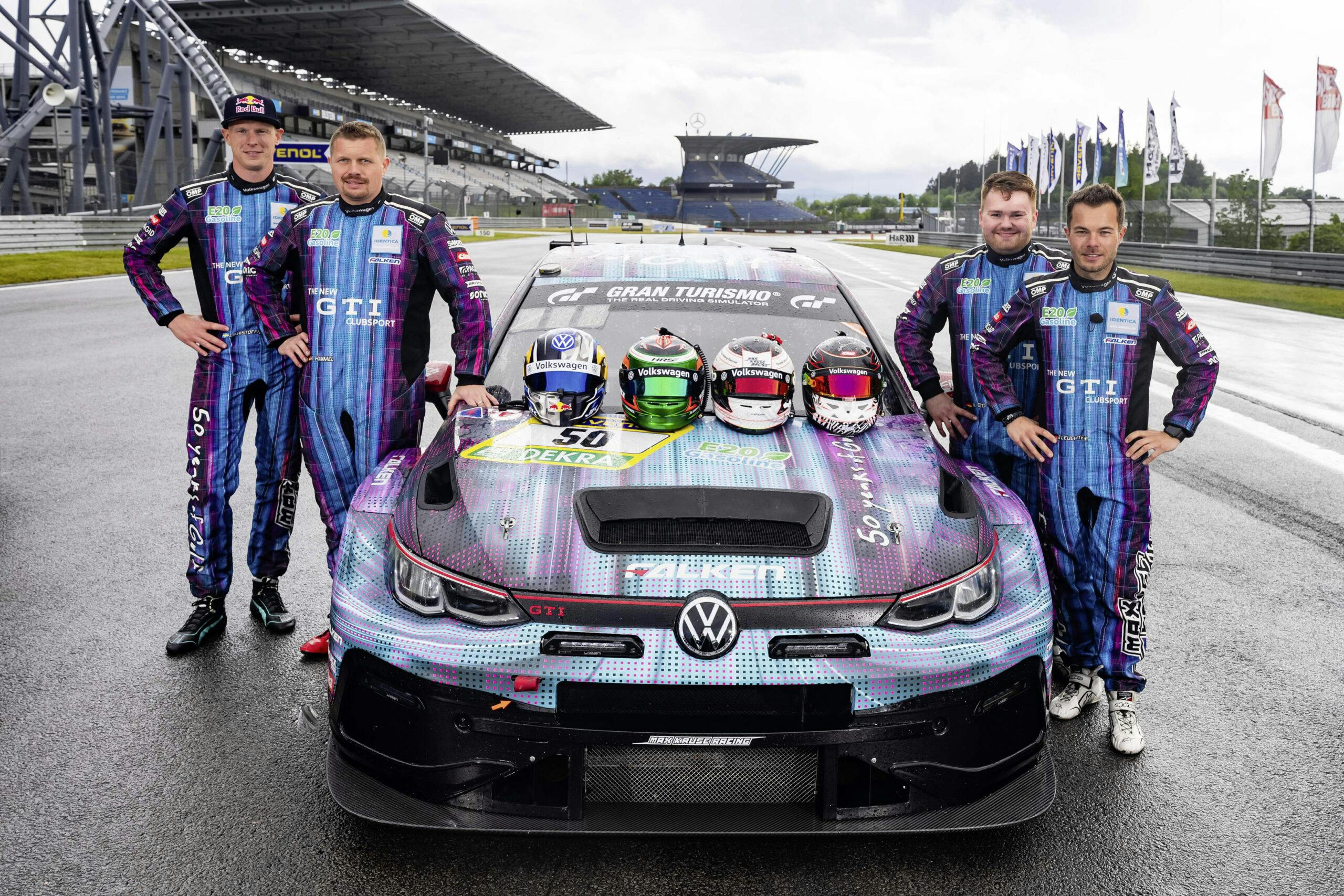


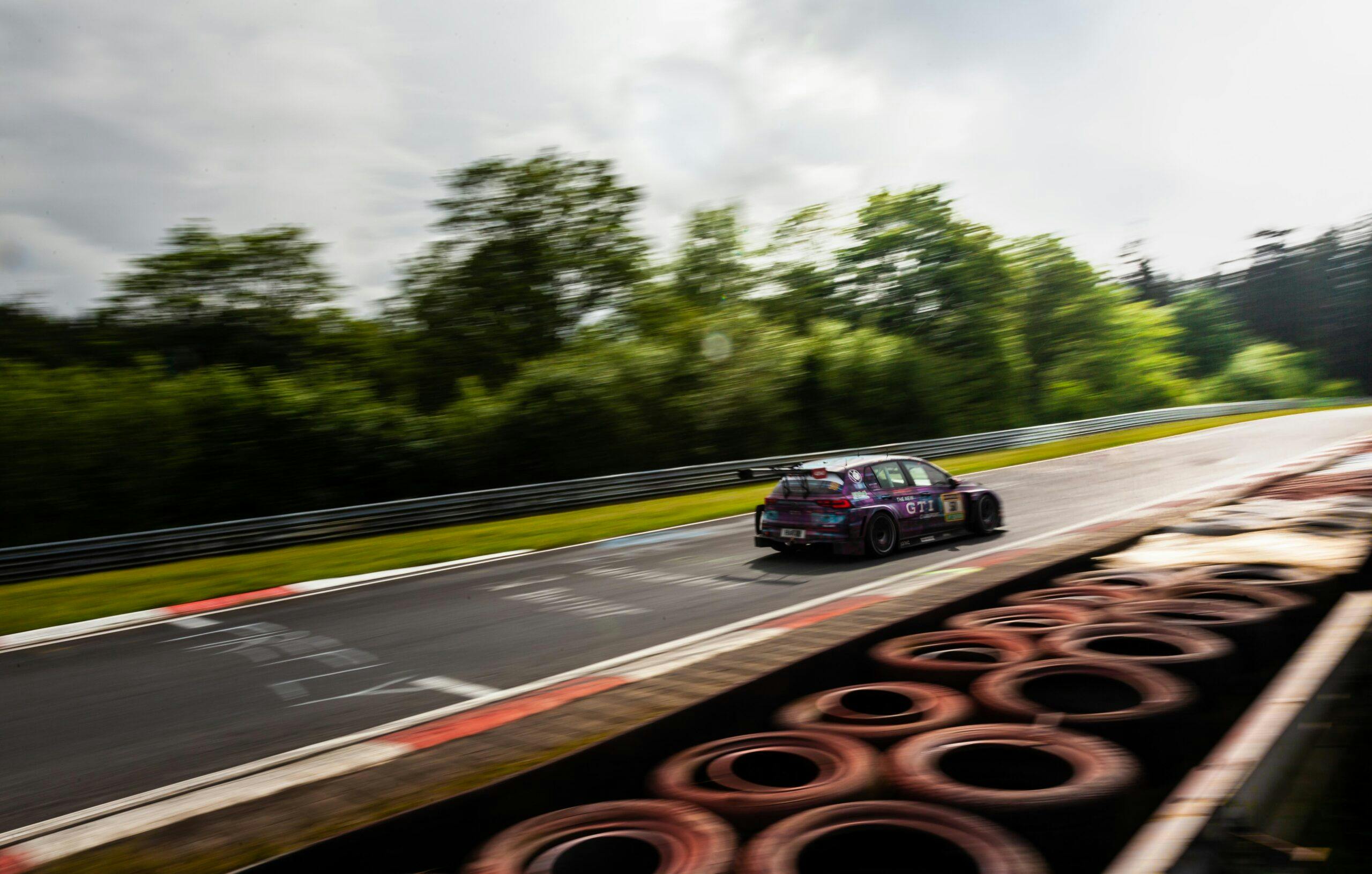
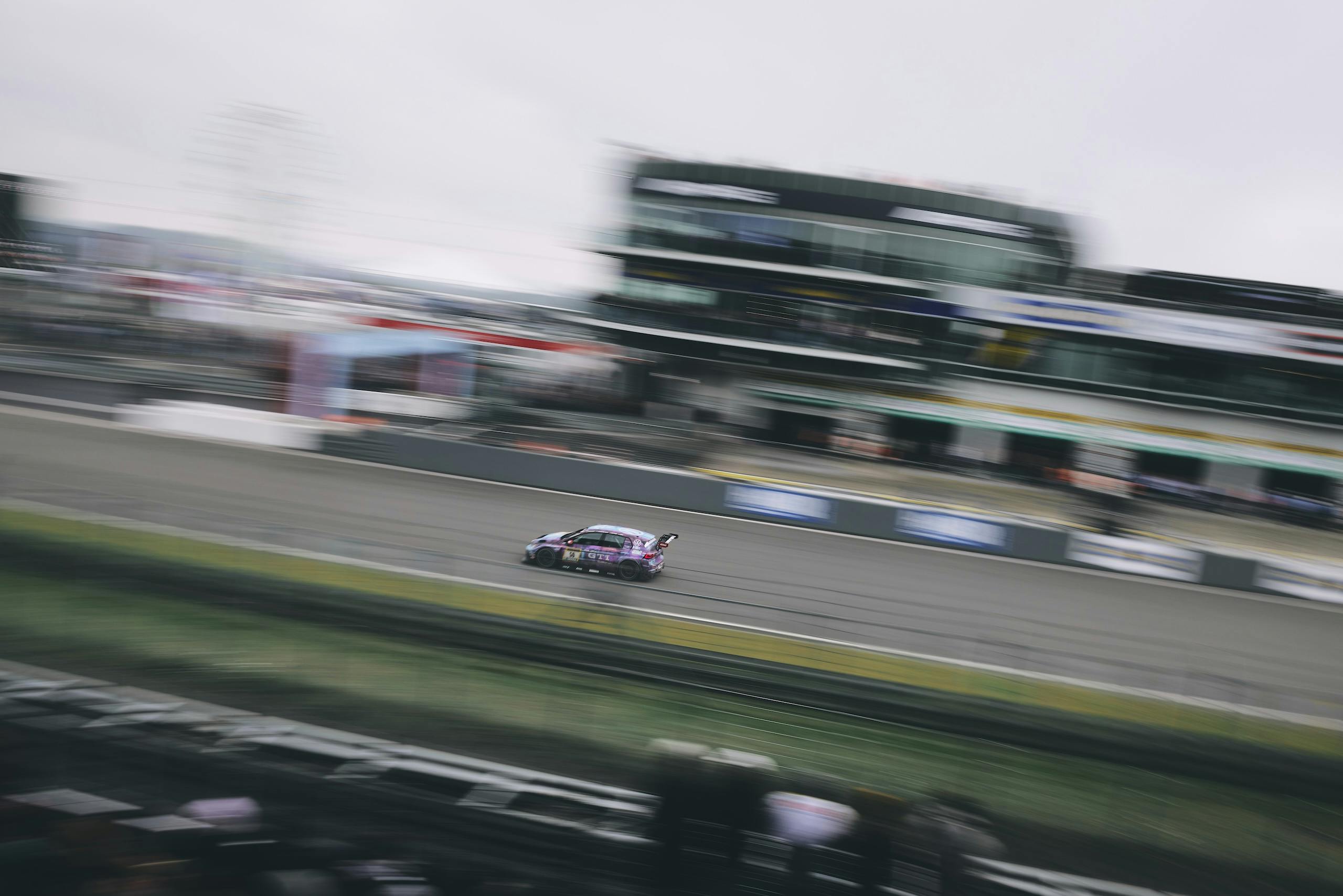
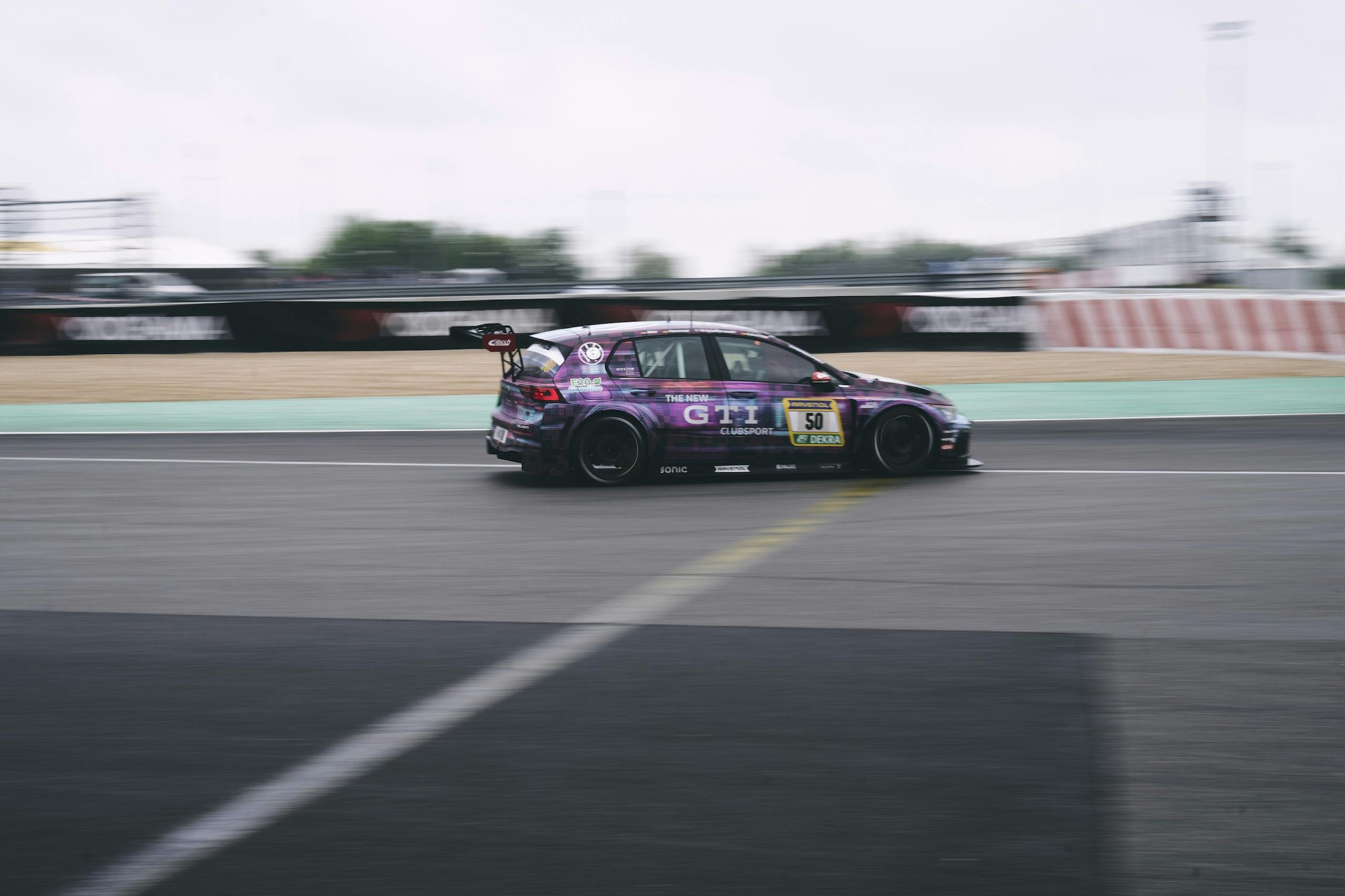
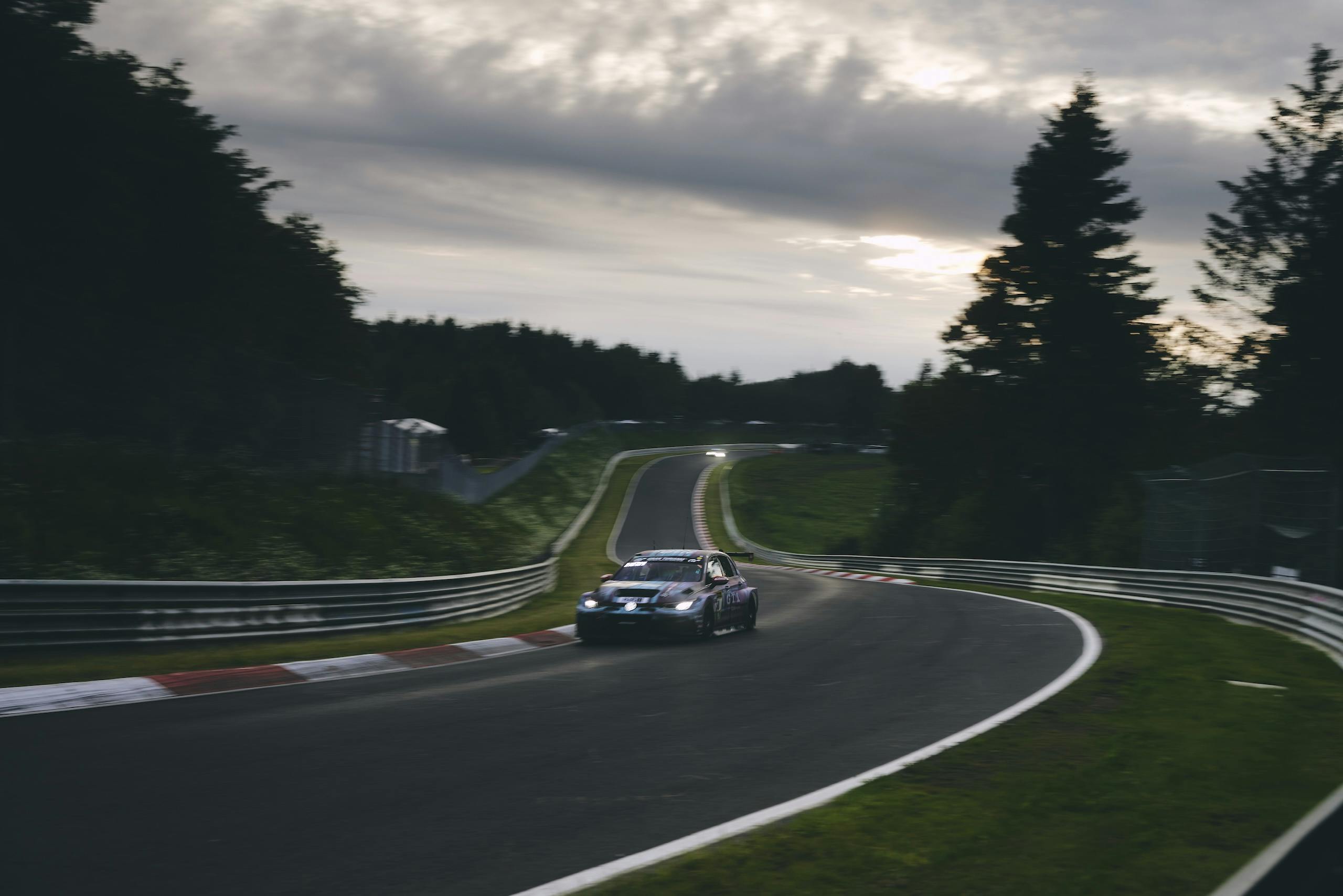
***
Check out the Hagerty Media homepage so you don’t miss a single story, or better yet, bookmark it. To get our best stories delivered right to your inbox, subscribe to our newsletters.


